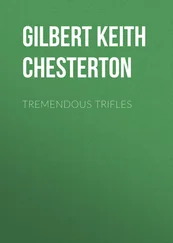Gilbert Chesterton - Manalive
Здесь есть возможность читать онлайн «Gilbert Chesterton - Manalive» весь текст электронной книги совершенно бесплатно (целиком полную версию без сокращений). В некоторых случаях можно слушать аудио, скачать через торрент в формате fb2 и присутствует краткое содержание. Год выпуска: 1912, Издательство: Thomas Nelson and Sons, Жанр: Классическая проза, на английском языке. Описание произведения, (предисловие) а так же отзывы посетителей доступны на портале библиотеки ЛибКат.
- Название:Manalive
- Автор:
- Издательство:Thomas Nelson and Sons
- Жанр:
- Год:1912
- ISBN:нет данных
- Рейтинг книги:3 / 5. Голосов: 1
-
Избранное:Добавить в избранное
- Отзывы:
-
Ваша оценка:
- 60
- 1
- 2
- 3
- 4
- 5
Manalive: краткое содержание, описание и аннотация
Предлагаем к чтению аннотацию, описание, краткое содержание или предисловие (зависит от того, что написал сам автор книги «Manalive»). Если вы не нашли необходимую информацию о книге — напишите в комментариях, мы постараемся отыскать её.
Manalive — читать онлайн бесплатно полную книгу (весь текст) целиком
Ниже представлен текст книги, разбитый по страницам. Система сохранения места последней прочитанной страницы, позволяет с удобством читать онлайн бесплатно книгу «Manalive», без необходимости каждый раз заново искать на чём Вы остановились. Поставьте закладку, и сможете в любой момент перейти на страницу, на которой закончили чтение.
Интервал:
Закладка:
“It will be enough for many to say that I had passed a night with a maniac. What other term, it will be said, could be applied to such a being? A man who reminds himself that he is married by pretending not to be married! A man who tries to covet his own goods instead of his neighbor’s! On this I have but one word to say, and I feel it of my honour to say it, though no one understands. I believe the maniac was one of those who do not merely come, but are sent; sent like a great gale upon ships by Him who made His angels winds and His messengers a flaming fire. This, at least, I know for certain. Whether such men have laughed or wept, we have laughed at their laughter as much as at their weeping. Whether they cursed or blessed the world, they have never fitted it. It is true that men have shrunk from the sting of a great satirist as if from the sting of an adder. But it is equally true that men flee from the embrace of a great optimist as from the embrace of a bear. Nothing brings down more curses than a real benediction. For the goodness of good things, like the badness of bad things, is a prodigy past speech; it is to be pictured rather than spoken. We shall have gone deeper than the deeps of heaven and grown older than the oldest angels before we feel, even in its first faint vibrations, the everlasting violence of that double passion with which God hates and loves the world.–I am, yours faithfully,
“Raymond Percy.”“Oh, ’oly, ’oly, ’oly!” said Mr. Moses Gould.
The instant he had spoken all the rest knew they had been in an almost religious state of submission and assent. Something had bound them together; something in the sacred tradition of the last two words of the letter; something also in the touching and boyish embarrassment with which Inglewood had read them– for he had all the thin-skinned reverence of the agnostic. Moses Gould was as good a fellow in his way as ever lived; far kinder to his family than more refined men of pleasure, simple and steadfast in his admiration, a thoroughly wholesome animal and a thoroughly genuine character. But wherever there is conflict, crises come in which any soul, personal or racial, unconsciously turns on the world the most hateful of its hundred faces. English reverence, Irish mysticism, American idealism, looked up and saw on the face of Moses a certain smile. It was that smile of the Cynic Triumphant, which has been the tocsin for many a cruel riot in Russian villages or mediaeval towns.
“Oh, ’oly, ’oly, ’oly!” said Moses Gould.
Finding that this was not well received, he explained further, exuberance deepening on his dark exuberant features.
“Always fun to see a bloke swallow a wasp when ’e’s corfin’ up a fly,” he said pleasantly. “Don’t you see you’ve bunged up old Smith anyhow. If this parson’s tale’s O.K.–why, Smith is ’ot. ’E’s pretty ’ot. We find him elopin’ with Miss Gray (best respects!) in a cab. Well, what abart this Mrs. Smith the curate talks of, with her blarsted shyness–transmigogrified into a blighted sharpness? Miss Gray ain’t been very sharp, but I reckon she’ll be pretty shy.”
“Don’t be a brute,” growled Michael Moon.
None could lift their eyes to look at Mary; but Inglewood sent a glance along the table at Innocent Smith. He was still bowed above his paper toys, and a wrinkle was on his forehead that might have been worry or shame. He carefully plucked out one corner of a complicated paper and tucked it in elsewhere; then the wrinkle vanished and he looked relieved.
Chapter III
The Round Road; or, the Desertion Charge
Pym rose with sincere embarrassment; for he was an American, and his respect for ladies was real, and not at all scientific.
“Ignoring,” he said, “the delicate and considerable knightly protests that have been called forth by my colleague’s native sense of oration, and apologizing to all for whom our wild search for truth seems unsuitable to the grand ruins of a feudal land, I still think my colleague’s question by no means devoid of rel’vancy. The last charge against the accused was one of burglary; the next charge on the paper is of bigamy and desertion. It does without question appear that the defence, in aspiring to rebut this last charge, have really admitted the next. Either Innocent Smith is still under a charge of attempted burglary, or else that is exploded; but he is pretty well fixed for attempted bigamy. It all depends on what view we take of the alleged letter from Curate Percy. Under these conditions I feel justified in claiming my right to questions. May I ask how the defence got hold of the letter from Curate Percy? Did it come direct from the prisoner?”
“We have had nothing direct from the prisoner,” said Moon quietly. “The few documents which the defence guarantees came to us from another quarter.”
“From what quarter?” asked Dr. Pym.
“If you insist,” answered Moon, “we had them from Miss Gray.”
Dr. Cyrus Pym quite forgot to close his eyes, and, instead, opened them very wide.
“Do you really mean to say,” he said, “that Miss Gray was in possession of this document testifying to a previous Mrs. Smith?”
“Quite so,” said Inglewood, and sat down.
The doctor said something about infatuation in a low and painful voice, and then with visible difficulty continued his opening remarks.
“Unfortunately the tragic truth revealed by Curate Percy’s narrative is only too crushingly confirmed by other and shocking documents in our own possession. Of these the principal and most certain is the testimony of Innocent Smith’s gardener, who was present at the most dramatic and eye-opening of his many acts of marital infidelity. Mr. Gould, the gardener, please.”
Mr. Gould, with his tireless cheerfulness, arose to present the gardener. That functionary explained that he had served Mr. and Mrs. Innocent Smith when they had a little house on the edge of Croydon. From the gardener’s tale, with its many small allusions, Inglewood grew certain he had seen the place. It was one of those corners of town or country that one does not forget, for it looked like a frontier. The garden hung very high above the lane, and its end was steep and sharp, like a fortress. Beyond was a roll of real country, with a white path sprawling across it, and the roots, boles, and branches of great gray trees writhing and twisting against the sky. But as if to assert that the lane itself was suburban, were sharply relieved against that gray and tossing upland a lamp-post that stood exactly at the corner. Inglewood was sure of the place; he had passed it twenty times in his constitutionals on the bicycle; he had always dimly felt it was a place where something might occur. But it gave him quite a shiver to feel that the face of his frightful friend or enemy Smith might at any time have appeared over the garden bushes above. The gardener’s account, unlike like the curate’s, was quite free from decorative adjectives, however many he may have uttered privately when writing it. He simply said that on a particular morning Mr. Smith came out and began to play about with a rake, as he often did. Sometimes he would tickle the nose of his eldest child (he had two children); sometimes he would hook the rake on to the branch of a tree, and hoist himself up with horrible gymnastic jerks, like those of a giant frog in its final agony. Never, apparently, did he think of putting the rake to any of its proper uses, and the gardener, in consequence, treated his actions with coldness and brevity. But the gardener was certain that on one particular morning in October he (the gardener) had come round the corner of the house carrying the hose, had seen Mr. Smith standing on the lawn in a striped red and white jacket (which might have been his smoking-jacket, but was quite as like a part of his pyjamas), and had heard him then and there call out to his wife, who was looking out of the bedroom window on to the garden, these decisive and very loud expressions–
Читать дальшеИнтервал:
Закладка:
Похожие книги на «Manalive»
Представляем Вашему вниманию похожие книги на «Manalive» списком для выбора. Мы отобрали схожую по названию и смыслу литературу в надежде предоставить читателям больше вариантов отыскать новые, интересные, ещё непрочитанные произведения.
Обсуждение, отзывы о книге «Manalive» и просто собственные мнения читателей. Оставьте ваши комментарии, напишите, что Вы думаете о произведении, его смысле или главных героях. Укажите что конкретно понравилось, а что нет, и почему Вы так считаете.









